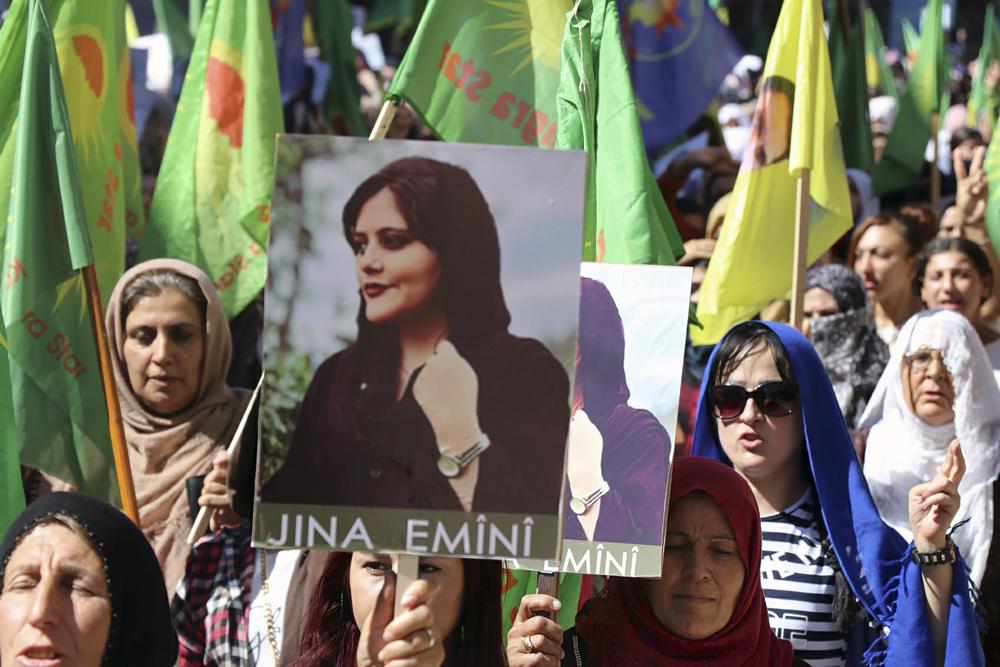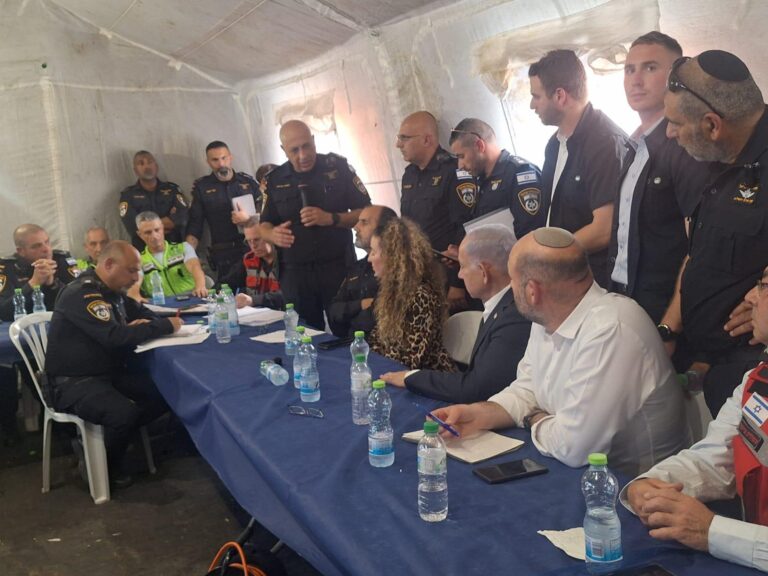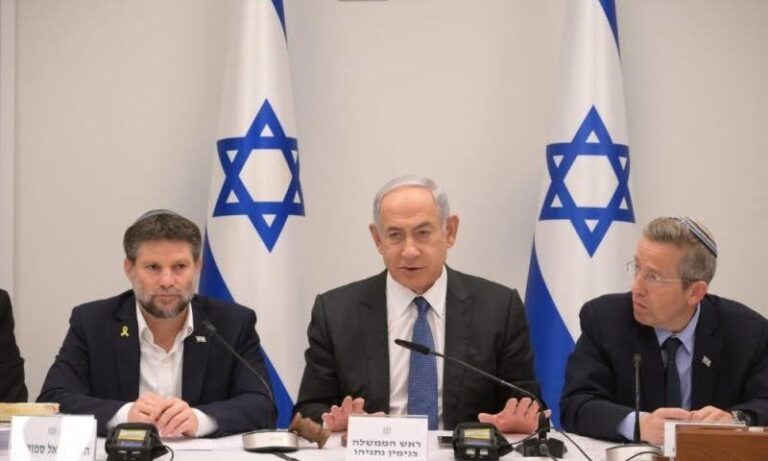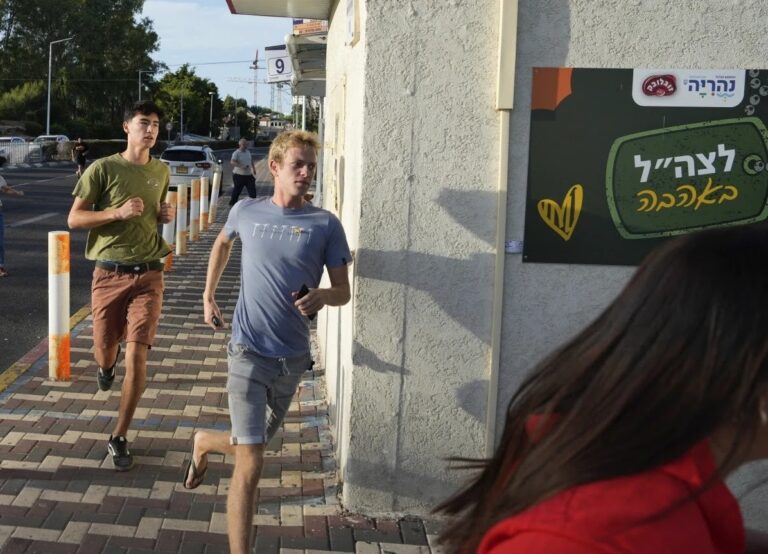A hard-line Iranian lawmaker Tuesday slammed female protesters who have taken off mandatory headscarves as prostitutes, doubling down on the government stance amid the dramatic demonstrations following the death of a 22-year-old woman detained by the country’s morality police.
The harsh language by Mahmoud Nabavian, a legislator from Tehran, was in sharp contrast to the appeal by a top cleric, Grand Ayatollah Hossein Nouri Hamadani, who on Sunday urged the government to listen to the people’s demands.
The fate of Mahsa Amini, an Iranian Kurdish woman who died in custody after being detained by the morality police — because her headscarf was allegedly too loose — has ignited unrest across Iran. Protests have have spread to at least 46 cities, including the capital of Tehran, towns and villages with scenes of violence and street clashes with security forces unseen for years in Iran.
State TV reported that a police officer died Tuesday in a hospital after being injured by rioters in the town of Robatkarim in Tehran province.
Solidarity protests have also erupted in Europe, the United States and in parts of the Middle East. In a predominantly Kurdish city in Syria, thousands of women took to the streets Monday, holding posters with Amini’s photo.
Across Iran, ordinary women and public figures, including Iranian actresses, have removed their headscarves in protest or cut their hair in public to show solidarity with the demonstrators.
Iran’s semi-official Tasnim news agency reported that security forces arrested reformist activist Faezeh Hashemi, daughter of Iran’s late President Akbar Hashemi Rafsanjani. The Tuesday report said Hashemi, who has previously served time in prison for her comments and activism, was arrested for allegedly inciting rioters to street protests in the east of Tehran on Tuesday night. A lawyer for Hashemi could not be reached and it was unclear if she had legal representation.
Iranian state TV has suggested that at least 41 protesters and police have been killed since demonstrations began Sept. 17. An Associated Press count of official statements by authorities tallied at least 14 dead, with more than 1,500 demonstrators arrested.
The state-run IRNA news agency reported Tuesday that Hassan Bahramnia, governor of Ilam province in western Iran near the border with Iraq, said security forces have arrested 180 protesters since the unrest began. He said some have been released.
“These rioters are out to prostitute themselves,” the lawmaker, Mahmoud Nabavian, was quoted as saying by Fararu, a news website. He suggested that taking off the hijab, or headscarf, was akin to being naked in public to attract male attention.
Nabavian blamed both women and men taking part in the protests, saying they were guilty of “impurities” that need to be washed away.
Hamadani’s tone was starkly different.
“It is necessary for officials to listen to people’s demands and solve their problems and be sensitive to their rights,” said the senior cleric, according to the state-run IRNA news agency.
U.S. Secretary of State Antony Blinken, speaking to reporters Tuesday in Washington, said Iran’s government took Mahsa’s life “because of decisions she should be making about what she would wear or not wear.”
“Women in Iran have the right to wear what they want,” he said. “They have the right to be free from violence.”
Amnesty International in a statement said urgent international action was needed to ensure accountability for Amini’s death in custody. The rights group said the case “must be independently, impartially and effectively investigated and those suspected of responsibility brought to justice in fair trials.”
The U.N. Human Rights Council called for an independent investigation to address “the prevailing crisis of impunity in Iran.”
Meanwhile, Iran’s judiciary chief, Gholamhosein Mohseni Ejehi, warned public and famous figures who have openly supported the demonstrators, that they must pay for damages to public property caused by the protests.
Abbas Salehi, Iran’s minister of Culture and Islamic Guidance, advised that actresses who removed their headscarves on social media posts should try to find other jobs, implying the ministry could ban them from working in their profession.
Iran has arrested at least 20 journalists since the start of the unrest, the Committee to Protect Journalists said late Monday, calling on Iran to release the reporters and halt its crackdown on the media.
“Iranian authorities should be ashamed of themselves for orchestrating this brutal crackdown,” said Sherif Mansour, CPJ’s Middle East and North Africa program coordinator. “They have proved their failure to grasp that suppressing dissenting voices only compounds dissent.”
The Syrian Kurdish-run Hawar News Agency reported on the protest in the northeastern, predominantly Kurdish region of Syria where thousands of women marched Monday in solidarity with Iranian women.
In the city of Qamishli, they held up photos of Amini and toward the end of the march several women, including an elderly one, cut off their hair, threw it to the ground, along with headscarves, and set the pile on fire.
“Long live freedom, women demand free life, revolution is in our hands,” the marchers chanted. “Women, life, freedom!”
(AP)











